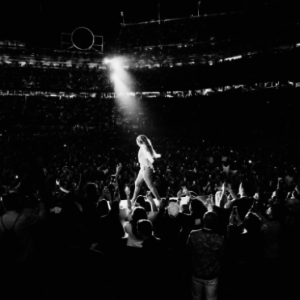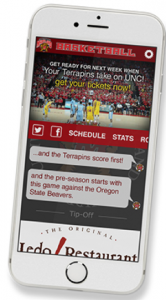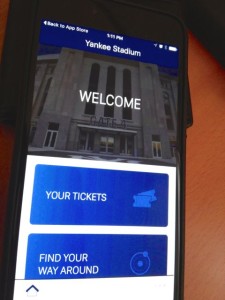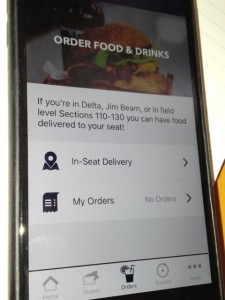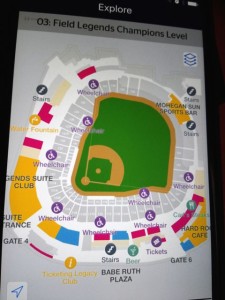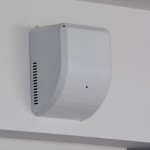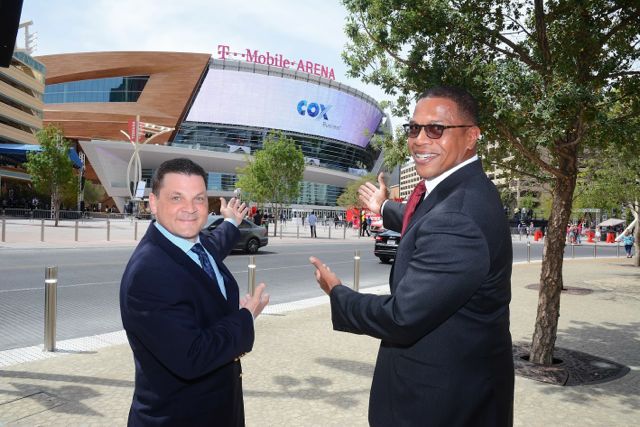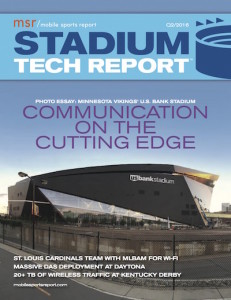 Our newest STADIUM TECH REPORT features a look inside the Minnesota Vikings’ new home, US Bank Stadium, with a sneak peek photo essay ahead of the venue’s August opening dates. Also included in our latest issue is a feature on Wi-Fi analytics, as well as in-depth profiles of technology deployments at the St. Louis Cardinals’ Busch Stadium, and the Buffalo Bills’ Ralph Wilson Stadium.
Our newest STADIUM TECH REPORT features a look inside the Minnesota Vikings’ new home, US Bank Stadium, with a sneak peek photo essay ahead of the venue’s August opening dates. Also included in our latest issue is a feature on Wi-Fi analytics, as well as in-depth profiles of technology deployments at the St. Louis Cardinals’ Busch Stadium, and the Buffalo Bills’ Ralph Wilson Stadium.
Our Q2 issue for 2016 also has a big focus on DAS deployments, specifically at two venues with extra-large attendance issues — namely, the Kentucky Derby and the Daytona 500. You can get all this analysis and reporting by simply downloading a free copy of the report!
From its architecturally striking exterior to its sunny glass-walled interior, US Bank Stadium looks like a jewel for downtown Minneapolis. While we’ll have a full report on the technology inside a bit later this summer, you can feast your eyes on what we saw during a hard-hat tour of the stadium in early June.
On the Wi-Fi analytics side, you can hear from several leaders in stadium Wi-Fi implementations about how they are using data from their networks to improve the fan experience while also finding new ways to boost their own stadium businesses. Our profiles of Busch Stadium, Ralph Wilson Stadium and a bonus profile of the Los Angeles Coliseum all provide in-depth coverage of the unique challenges each one of these venues faces when it comes to technology deployments. And our DAS-focused coverage of deployments at Churchill Downs and Daytona International Speedway illustrate how expanded cellular coverage can provide enough connectivity when Wi-Fi isn’t an economic option. DOWNLOAD YOUR COPY of the report today and get this knowledge inside your head!
